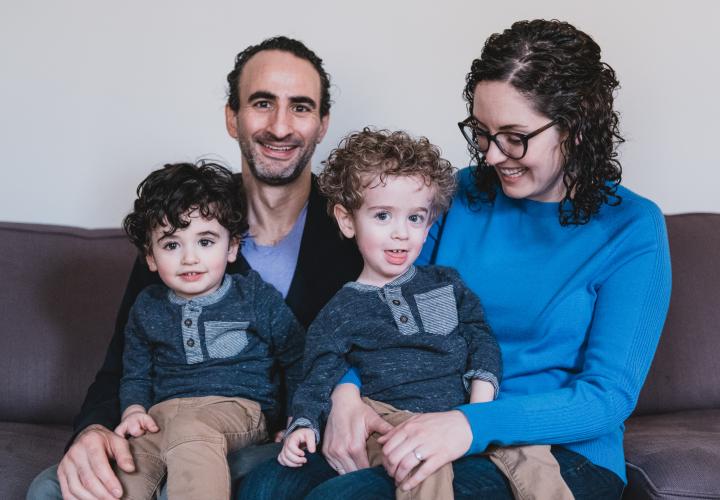Why Choose Connecticut Children’s Lead Treatment Program?
No blood lead level is considered safe in children, and our multi-disciplinary team of pediatric providers is specially trained to treat children with lead exposure and lead poisoning. In addition, Connecticut Children’s Lead Treatment Program works with pediatricians and other local agencies to prevent lead poisoning in children through education.
Lead Treatment Services
The program offers a variety of services at Connecticut Children’s – Hartford:
- Outpatient management of lead poisoning patients, including: education, coordination with local health departments, and developmental screening
- Inpatient management of lead-poisoned patients with levels > 45ug/dL
- Education to local pediatricians and community programs
- Telephone consults with pediatricians and patients
Meet Our Team

Jennifer Haile, MD
- Specialty
- Primary Care

Make Your Home Lead Safe!
Connecticut Children’s Healthy Homes Program tackles health issues caused by hazards in older homes, like lead and mold. Supported by federal and state agencies, the program works to improve housing quality, prevent problems, and boost children’s long-term health and development.
Resources for Patients, Families and Medical Professionals
The Connecticut state mandate is to have a child’s blood lead level checked twice before 36 months of age. If your child hasn’t been tested in that time, they should be checked at least once before 72 months. Reach out to your provider and make sure your child was tested. In addition, between 36 and 72 months, you should complete a Lead Risk Assessment questionnaire regarding your child’s living environment.
We routinely see patients in our clinic with lead levels of 3.5ug/dL or greater and we are available to answer questions. Identifying the source of lead through a detailed environmental history or with help from the local health department is an essential part of what we do. We also educate families on preventing re-exposure to sources of lead. Monitoring development and providing dietary counseling are done at each visit.
In addition, we connect families with local health departments and resources that can help them.
To help parents better understand where lead comes from and how to prevent lead poisoning, we developed A Parent’s Guide to Lead Poisoning Prevention.
Patients with venous lead levels greater than 3.5ug/dL are able to make an appointment with our program without a referral.
Lead poisoning is preventable, and we are committed to doing what we can to help prevent it. Once the lead absorbs into the body, the effects are irreversible. It can take months to years for levels to return to normal. Lead can affect a child’s development, attention, and learning potential. It is crucial to support the growth and development of lead-exposed children.
Let’s quickly review the requirements and guidance for childhood-led screening by health professionals published by the Connecticut Department of Public Health. Medical professionals are required to:
- Provide families with health education on childhood lead poisoning before testing.
- Conduct annual lead tests at 12 months and 24 months of age.
- Conduct a lead test on children between 36 and 72 months of age if they were not previously tested.
- Conduct a lead test on children under 6 years of age if they have developmental delays.
- Administer a medical Lead Risk Assessment questionnaire at least annually for each child 36 to 72 months of age and test if indicated.
Educational Services
We educate families on ways to prevent continued exposure to the lead source. Extensive nutritional guidance and developmental evaluation are also a part of each visit. In addition, we supervise inpatient chelation for lead levels greater than 45ug/dL.
We are also available to provide education to any office that would like to learn about lead poisoning prevention. If you are interested in scheduling a lecture, please schedule a training through the Educating Practices program.
Healthy Homes Program
The Healthy Homes Program at Connecticut Children’s has resources to help families with lead in their home.
Additional Resources


